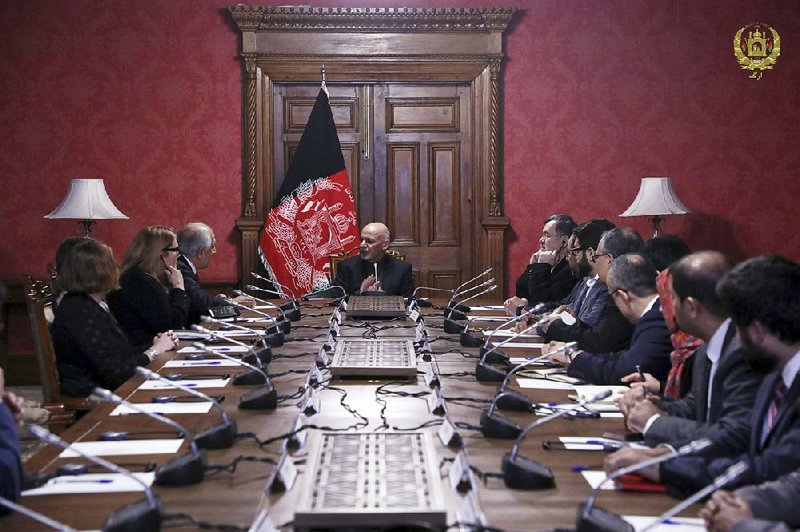KABUL, Afghanistan -- American and Taliban officials have agreed in principle to the framework of a deal in which the insurgents would guarantee Afghan territory is never used by terrorists, which could lead to a full pullout of U.S. troops, the chief U.S. negotiator said Monday.
The negotiator, Zalmay Khalilzad, said the pullout would be contingent on larger concessions from the Taliban, including the Taliban's agreement to a cease-fire and to talk directly with the Afghan government, which the insurgents have opposed in the past.
"We have a draft of the framework that has to be fleshed out before it becomes an agreement," Khalilzad said in an interview with The New York Times in Kabul. "The Taliban have committed, to our satisfaction, to do what is necessary that would prevent Afghanistan from ever becoming a platform for international terrorist groups or individuals."
Khalilzad added: "We felt enough confidence that we said we need to get this fleshed out, and details need to be worked out."
Keeping Afghanistan from reverting to the terrorist haven used by al-Qaida to plot the Sept. 11, 2001, attacks on the United States -- the catalyst for the nearly two-decade-old war -- has long been a primary demand by U.S. officials.
The U.S. has made halting efforts to reach a peace deal with the Taliban for nine years.
A senior American official, speaking on condition of anonymity to discuss ongoing negotiations, said the Taliban delegation had asked for time to confer with their leadership about the U.S. requirements for the insurgents' agreement to hold direct talks with the Afghan government and to a cease-fire.
The official described all those issues as "interconnected" as part of a "package deal" that was likened to a Russian nesting doll. The official's account was supported by details that have been leaked by some Taliban and Western officials in recent days.
A senior Taliban official with direct knowledge of the talks on Monday confirmed the draft agreement on the issue of foreign troop withdrawal and the Taliban pledge that Afghan soil would not be used against others. He said "working groups" would iron out details on a timeline of a withdrawal.
But in a sign that the conditions the Americans have demanded may be difficult to reach, the Taliban official said he did not see the agreement as being dependent on a cease-fire or direct talks between the Taliban and the Afghan government. The official declined to specify the Taliban's position on these issues.
The details of enforcing the Taliban's pledge to prevent international terrorists such as al-Qaida from using Afghan soil as a launching pad for attacks again also remained unclear.
American officials said Taliban representatives had told them the Taliban would "provide guarantees" that would satisfy the U.S. demands, but they would not share details of an enforcement mechanism.
Although the Taliban have been distancing themselves from al-Qaida, they have never denounced the group. Taliban fighters still intermingle with international militants in parts of Afghanistan and maintain relationships of coexistence with some of them.
Khalilzad returned to Afghanistan on Sunday to brief the government in Kabul after conducting six days of talks with the Taliban delegation in Doha, Qatar.
In an address to the nation on Monday after Khalilzad had briefed him, President Ashraf Ghani expressed concern that a peace deal would be rushed. He highlighted previous settlements that ended in bloodshed, including when the Soviet Union withdrew from the country in the late 1980s.
Despite a promise of a peace deal at the time, Afghanistan broke into anarchy, and years later the Afghan president who had been in charge during that transition, Mohammad Najibullah, was assassinated and his body hanged from a pole at a traffic roundabout.
"We want peace quickly, we want it soon, but we want it with prudence," Ghani said. "Prudence is important so we do not repeat past mistakes."
A Section on 01/29/2019
